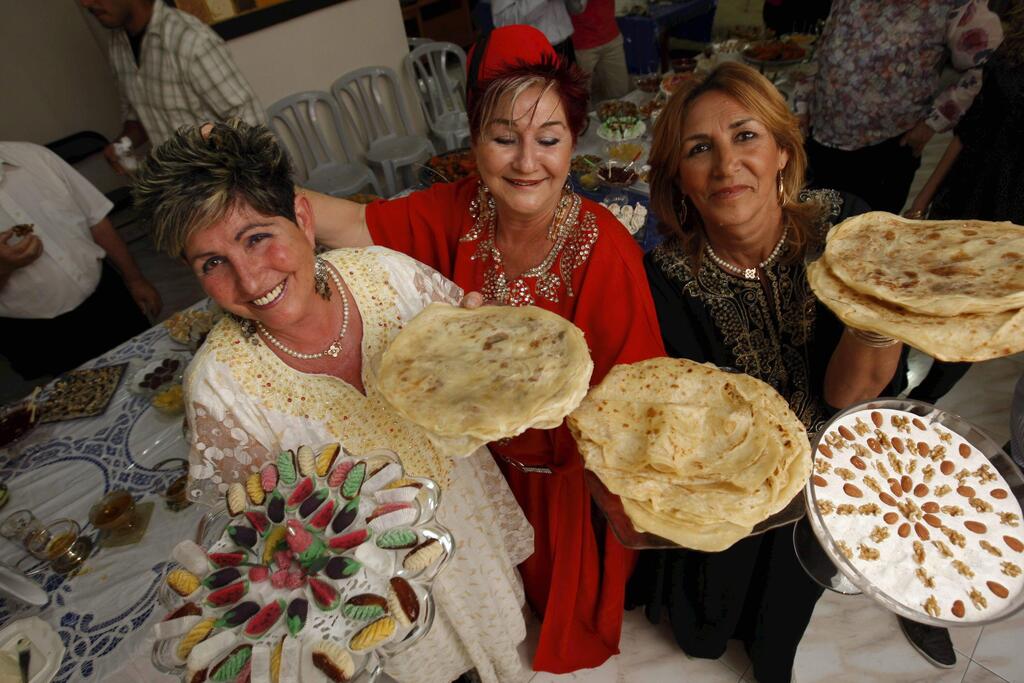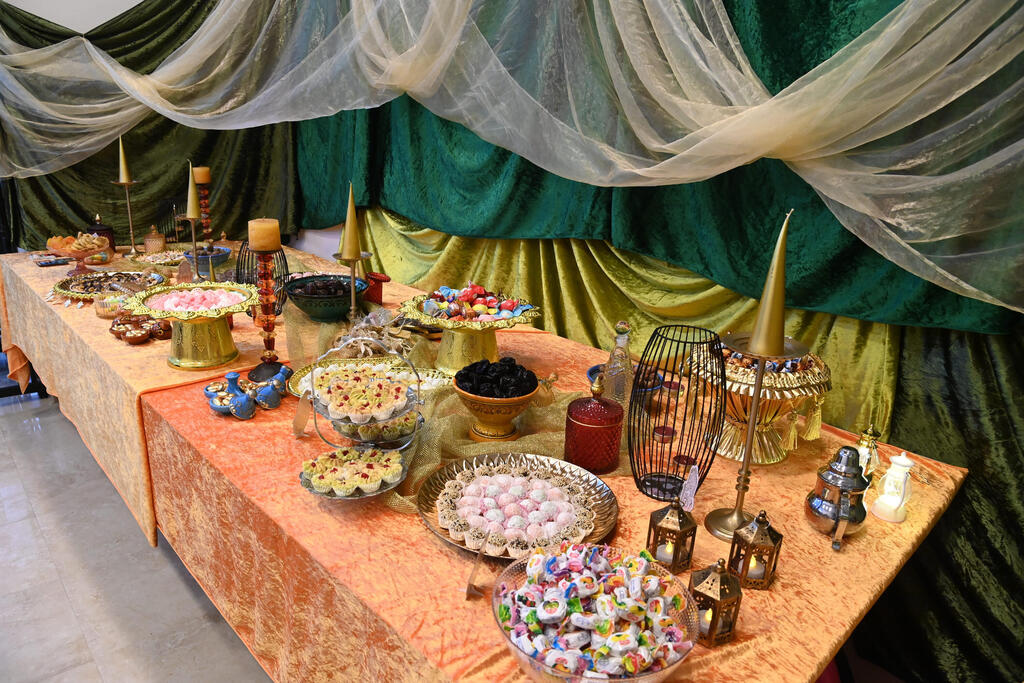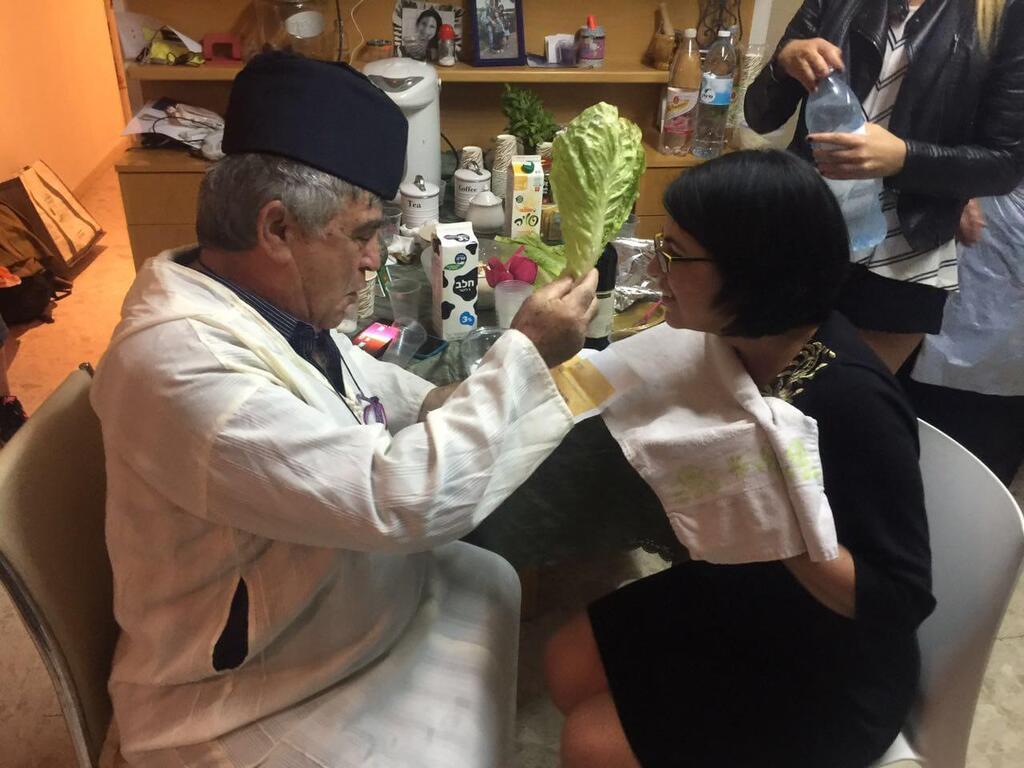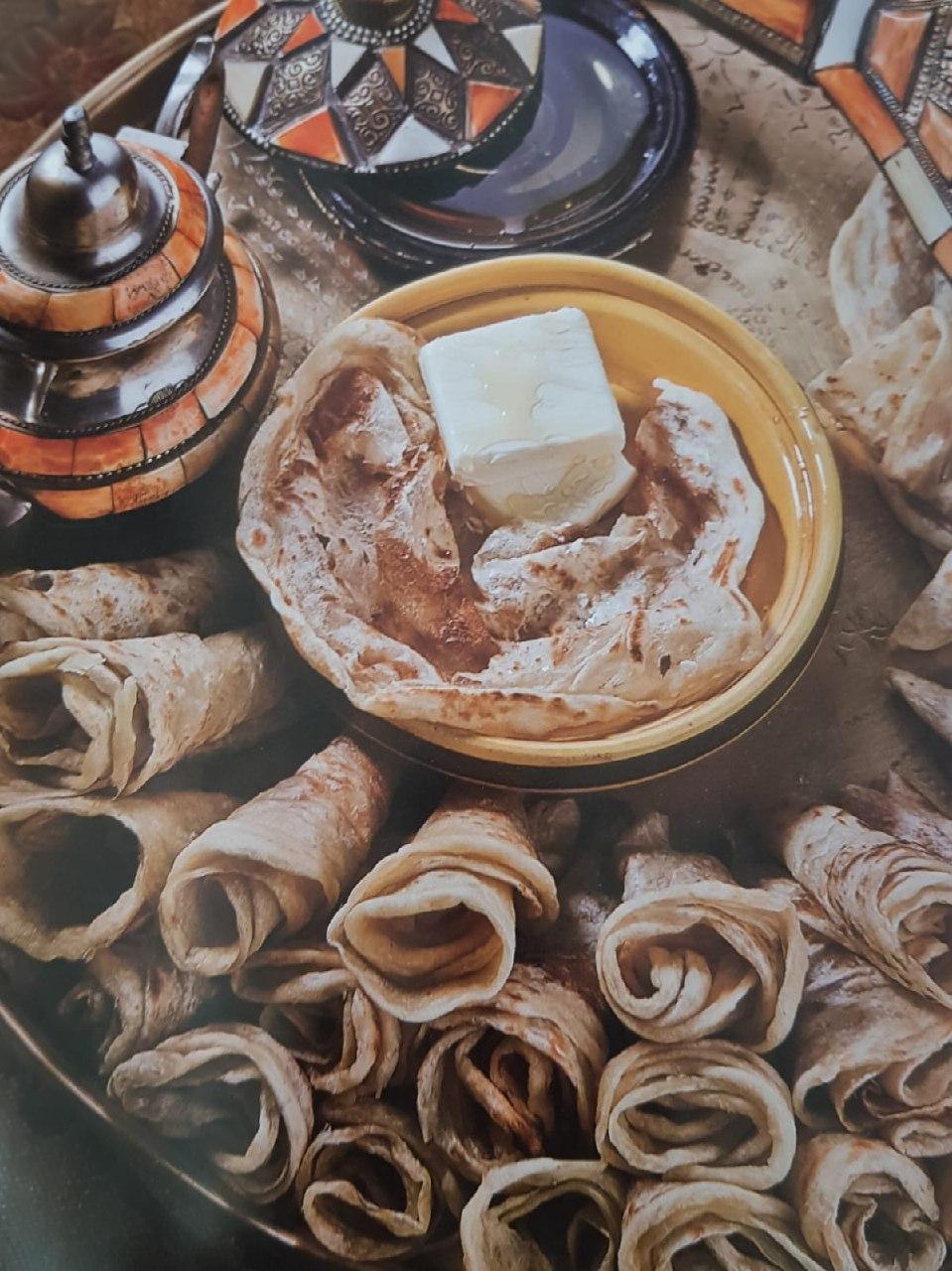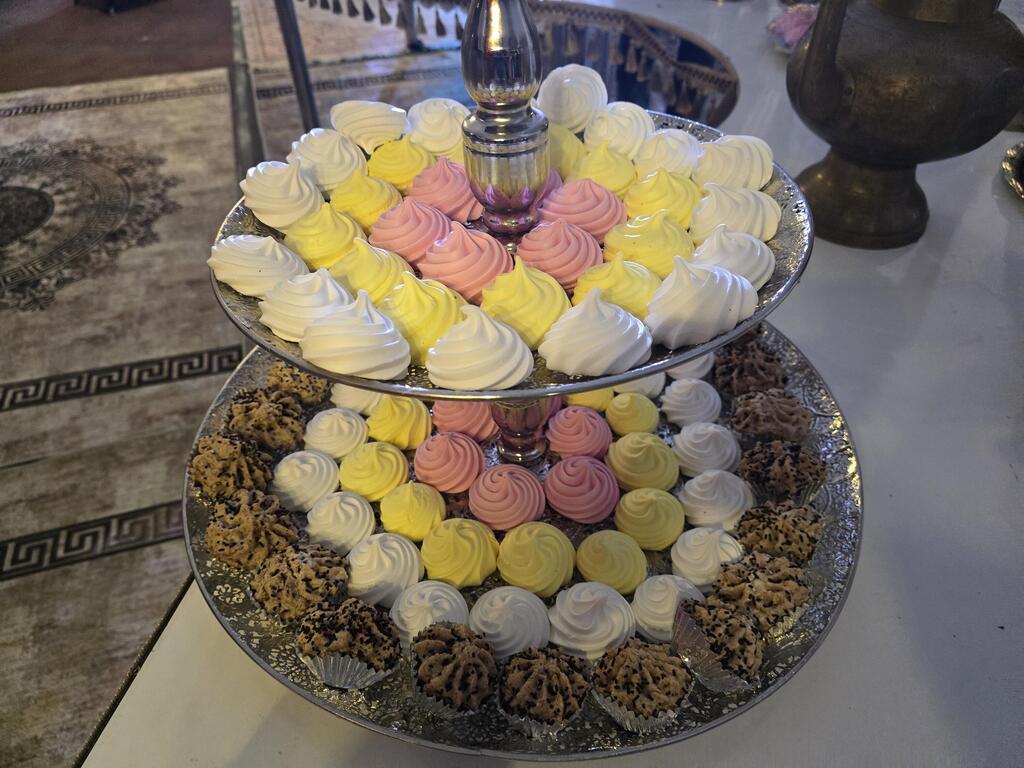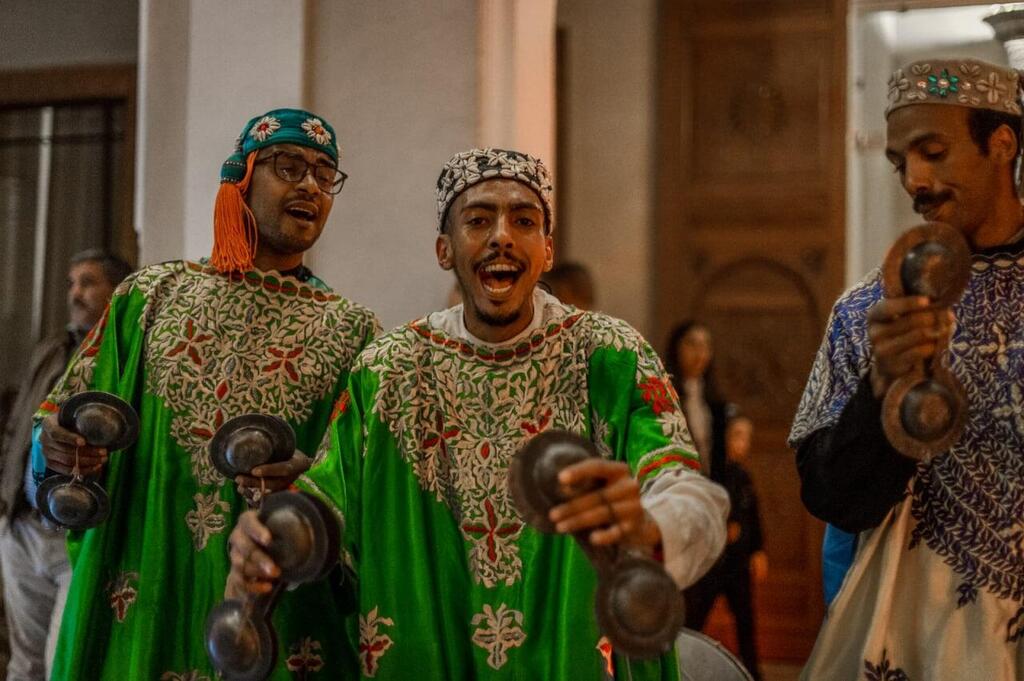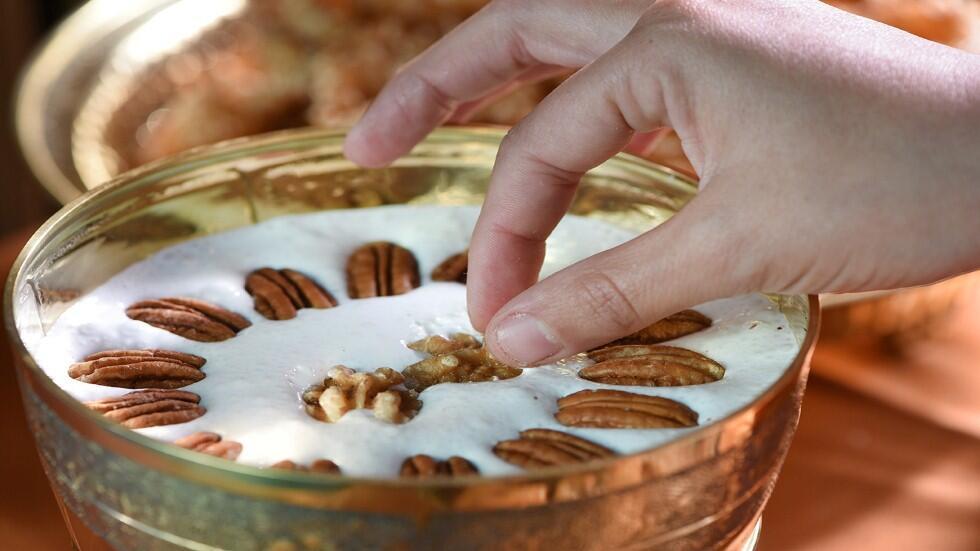Getting your Trinity Audio player ready...
Mimouna is celebrated on the evening following the seventh day of Passover, on the night of the 22nd of Nisan, and continues into the next day, known as Isru Chag. On this night, Jewish families open their homes and hearts, putting into practice the Passover Haggadah phrase, “Kol dichfin yeitei veyeichol” — “Let all who are hungry come and eat.”
The evening is marked by a festive gathering of neighbors, friends and acquaintances, with open doors welcoming all to join in an atmosphere of joy. Guests are invited to listen to blessings, sing traditional songs, dance and enjoy an array of sweet delicacies.
Most of the foods served remain kosher for Passover, with the notable exceptions of Mimouna’s stars: moufleta — thin, buttery pancakes — and zaben, which are placed prominently on tables alongside dates stuffed with butter and nuts.
Mimouna is a vibrant and colorful communal celebration that fosters connection among both friends and strangers. The tradition, rooted in the coexistence of Jews and Muslims in North Africa, celebrates good neighborly relations. In Morocco, Jews would celebrate Mimouna with their Muslim neighbors, who were often the first to bring flour to their homes after a week of separation during Passover.
The name "Mimouna" is believed to derive, in part, from the Arabic word “maymoun”, meaning “luck” or “fortune.” The holiday expresses faith and hope in the imminent arrival of redemption, and is filled with blessings for abundance, health and prosperity in the year to come.
In some Moroccan communities, it is customary for the host to take a lettuce leaf, dip it in milk and gently press it to the forehead of a guest while reciting verses of blessing from the Book of Proverbs:
- “Length of days and years of life and peace they will add to you”;
- “For by me your days will be multiplied, and the years of your life will be increased”;
- “So you will find favor and good understanding in the sight of God and man”;
- “Commit your works to the Lord, and your thoughts will be established.
The host then blesses the guest, saying: “You shall be nourished and blossom — succeed and rejoice,” and offers a date filled with a walnut or a small cube of butter.
Mimouna – what’s behind the celebration?
Mimouna festivities began around 250 years ago, in the 18th century, and have been preserved primarily within the Moroccan Jewish community. But what are the origins of the holiday? There are several explanations:
The Festival of Faith – Since Passover has ended and the month of Nisan is drawing to a close, but the redemption has not yet arrived, Moroccan Jews traditionally add an extra day of celebration to express their continued belief that even if redemption is delayed, it will eventually come.
The Commemoration of Rabbi Maimon – According to tradition, the anniversary of the death of Rabbi Maimon, the father of Maimonides (Rabbi Moses ben Maimon), falls on the day after Passover. As Maimonides was one of the greatest Jewish scholars of all time — a philosopher, legal authority and physician — Mimouna is also observed as a memorial in honor of his father, a respected figure among North African Jewry.
A blessing for the first grain harvest – The Mishnah teaches that the fate of the coming year’s crops is determined during the month of Nisan (Rosh Hashanah 1:2). For this reason, Mimouna meals are filled with foods symbolizing abundance and fertility — fruits, sweets and other delicacies — over which blessings are recited to ensure a fruitful agricultural year.
Get the Ynetnews app on your smartphone: Google Play: https://bit.ly/4eJ37pE | Apple App Store: https://bit.ly/3ZL7iNv
A night of livelihood, matchmaking and fortune – Moroccan Jews believe that on the night following Passover, the gates of heaven open to the prayers of the Jewish people. As such, they use this night to pray for a successful year filled with luck and blessings. Rabbi Yosef Mashash once wrote, “This is an auspicious time to pray for livelihood and wealth, and so people blessed one another with: ‘May you prosper and succeed.’” It was also customary to formalize marriage matches arranged during the festival and to bless the couples with happiness, abundance and good fortune.
What does “tirb’chu ve’tis’adu” mean?
The traditional Mimouna greeting “tirb’chu ve’tis’adu” is most commonly understood to mean “May you prosper and succeed.” But some interpret the blessing more broadly, as an expression of social values — invoking both material livelihood (ribach, profit) and communal well-being (se’ada, support for others). It reflects a universal human desire for good fortune and success.
Rooted in this spirit of generosity, it became customary on Mimouna night to give gifts to the needy. Groups of the poor would go from house to house, receiving food and charitable donations in honor of the holiday.
The day after Mimouna, families traditionally head outdoors for picnics, celebrating the renewal of nature with Birkat Ha’ilanot — the blessing over blossoming trees:
“Blessed are You, Lord our God, King of the Universe, who has made nothing lacking in His world, and who created in it good creatures and good trees to bring pleasure to humankind.”
Over the years, Mimouna has moved beyond the homes and neighborhoods of North African Jews and into the public sphere. What was once the heritage of a single community has become a shared national celebration — an evening devoted to hospitality, joy and neighborly connection.
- Heli Tabibi Bareket is chair of the Research and Heritage Department at the Israeli Council for Culture and the Arts, and founder of the Hebrew Calendar Project – Setting Dates for Generations


